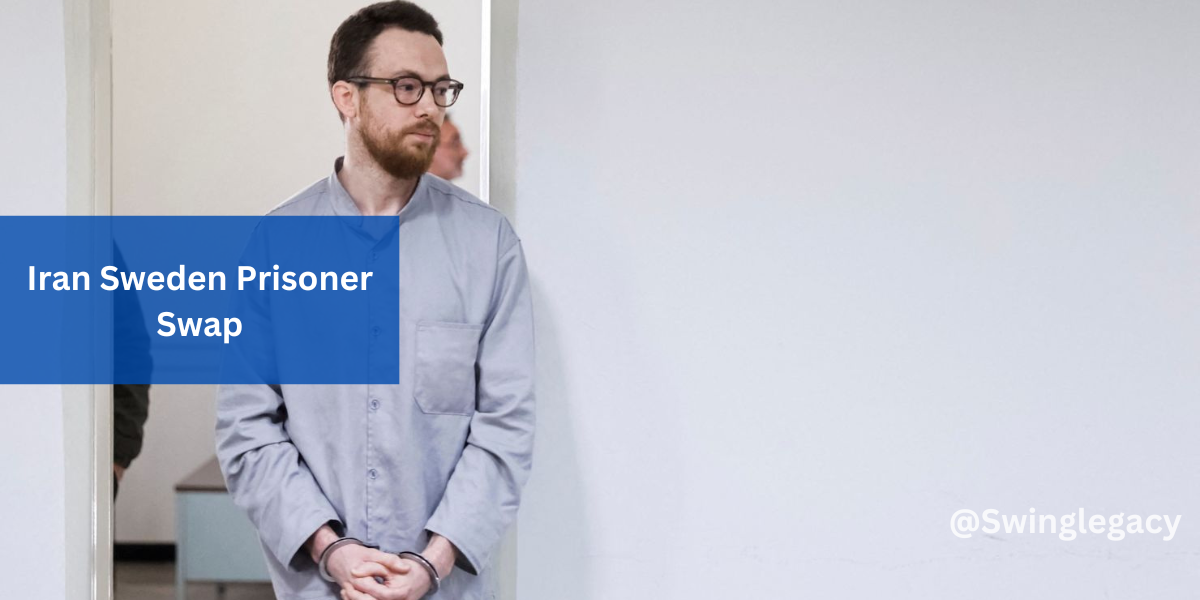A recent and controversial prisoner swap, Sweden and Iran have exchanged prisoners under circumstances that have attracted public attention and adulation. This exchange was involving Iranian Hamid Noury, who was found guilty by Sweden of war crime as well as two Swedish citizens and diplomats Johan Floderus and dual national Saeed Azizi.
Who is Hamid Noury?
Hamid Noury, a 63-year-old Iranian who was facing a life sentence in Sweden during the time of the exchange. He was arrested upon arriving in the Stockholm airport in the year 2019, Noury was later convicted of his role in the execution of a mass number of politically imprisoned people in Iran in the latter half of 1980s. Particularly the verdict was that he was in the case of “grave breaches of international humanitarian law and murder” connected to the executions in 1988 in the Gohardasht jail in Karaj, Iran.
What Were the Circumstances of the Executions?
The executions that were in question took place amid a period of intense tensions in the politics in the aftermath of the Iran-Iraq War. In 1988, in response to an attack from the Mujahedin-e Khalq (MEK), an opposition leftist group backed by the Iraqi government and the country’s supreme leader Ayatollah Ruhollah Khomeini ordered execution of prisoners who sided with or sympathized with MEK. Human rights activists believe that between 2800 to 5,000 women and men were executed in prisons, including Gohardasht prison in the period of.
Who Are the Swedes Involved in the Swap?
The Swedish participants in the swap are Johan Floderus, a diplomat who was detained in Iran under charges of spying just two years ago. The other is Saeed Azizi is a dual-national that was arrested in November. He was convicted of five years of prison. Their release came following intensive negotiations between diplomats, the Swedish Prime Minister Ulf Kristersson describing them as “pawns in a cynical negotiation game.”
How Has This Affected Sweden-Iran Relations?
Relationships among Sweden and Iran which were already in a state of tension due to the conviction of Noury, are now worsening following the swap. There is a rift between Sweden and Iran. Swedish government has been highly critical of Iranian actions and has suggested that the arrests of Floderus and Azizi were deliberate moves taken from Iran to aid in an eventual release for Noury.
What Legal Principles Were Involved in Noury’s Conviction?
Noury’s trial was conducted on the basis of universal jurisdiction. It permits countries to pursue individuals in court for crimes against humanity that are serious and committed in other countries. This principle demonstrates the international obligation to hold accountable those who commit the violations of international human rights laws, such as genocide, war crimes brutality, and human rights violations.
What Are the Broader Implications of the Swap?
The prisoner exchange could have wider consequences for international justice as well as diplomatic relations. On the one hand, there are questions regarding the ethics and effectiveness in using people as a diplomatic tool. However, it also exposes the complexity of international law as well as the difficulties faced by countries when trying to balance diplomatic relationships with accountability for violations of human rights.
Conclusion
This release by Hamid Noury as a trade in Johan Floderus and Saeed Azizi isn’t just an issue of bilateral relations with Sweden and Iran it is a major issue that will impact the international legal system, human rights and international diplomatic procedures. When nations are navigating these tangled waters, the world will be watching closely in hopes of achieving a balance between the diplomatic approach and the determination to find justice for those who have suffered from grave crime.

